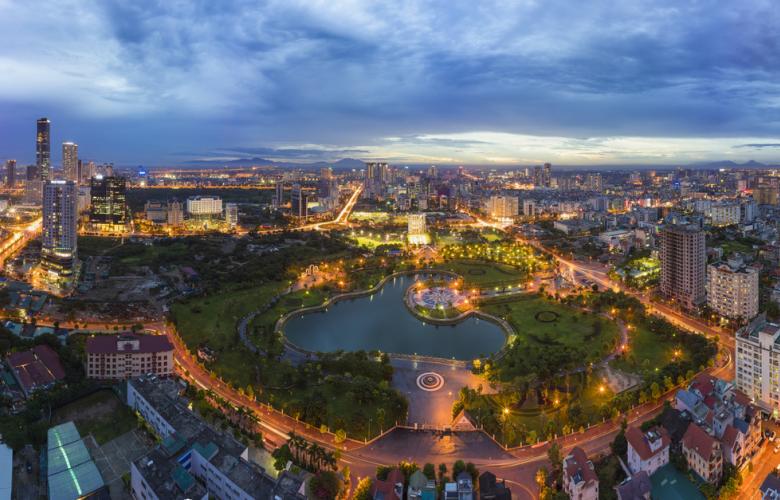Renting property in Vietnam
Contact
Renting property in Vietnam
The basics for foreigners interested in renting Vietnamese real estate.
This article is intended as a preliminary guide only and refers to some but not all elements required to consider in detail prior to starting any property dealings or due diligence. Property dealings are often complex, especially in foreign countries and we highly recommend you seek independent professional advice... read more...
According to the Law on Residential Housing, foreign organizations and individuals who are allowed to enter Vietnam for a period of at least 3 consecutive months are eligible to lease residential houses in Vietnam. However, short-term options are readily available.
Though it is certainly possible to find accommodation without the assistance of a real estate agency, if you do not speak or read Vietnamese you might find an agent can simplify the process, as well as provide you with lease documents in both English and Vietnamese. Agent fees tend to be paid by the landlord.
Regions in brief
Lying on the bank of the Red River in the country’s north, Hanoi has been the capital city of Vietnam since 1976. Its population is close to 8 million. Tay Ho, to the north of central Hanoi, has a growing restaurant scene, many international schools and is popular with expats.
Sa Pa and Ha Long are popular escapes from busy Hanoi. Sa Pa is a town on the far north west of Vietnam, busy with travellers trekking among local villages and paddy fields. Ha Long can be found to the north east, with the tree covered islets in Ha Long Bay among Vietnam’s most recognisable locations as well as a world heritage site.
Also in northeastern Vietnam is Hai Phong City, a major port city with French colonial heritage and a population of over 2 million.
Around 1,760 km south of Hanoi sits Ho Chi Minh City. Its population of more than 10 million makes it the largest city in Vietnam. The city is divided into 24 districts, some numbered, others named and different districts can offer quite different lifestyles. District 1 is the buzzing central business district, with a variety of entertainment and nightlife, options range from budget guest houses to luxurious serviced apartments. District 2 is more family friendly, with more houses, green spaces and international schools.
In central Vietnam you’ll find Da Nang (or Danang), a major port on the Eastern Sea. There are mountains to one side, beaches on the other and the Han River down the middle, dividing the city in two.
Outside of the bigger cities, lies Nha Trang with a population of only 500,000 and a bay that has been described as one of the world’s most beautiful, while picture perfect white sand beaches meet densely forested mountain national park in Phu Quoc Island, the largest island in Vietnam. Tourism is a growing industry here with around 100,000 people calling it home.
Rental payments
Rents are generally expressed in USD per month, and are usually payable quarterly in advance. It is likely that a deposit of 3 months gross rent will be required. Lease terms are typically between 2–3 years.
Rent increases or reviews are based on open market rental value or a fixed increment agreed at the outset of the lease and may occur at lease renewal or every 2–3 years.
What service charges, operating costs, repairs and insurance can I expect?
Electricity and telecommunication consumption are separately metered and payable by each tenant. The largest electricity provider in Vietnam is Vietnam Electricity, though the company website is entirely in Vietnamese, offices are located around Vietnam. Vietnam Posts and Telecommunications Group is the state-owned service provider. New accounts can be opened at transaction counters. Water consumption is included in the management charges.
Car parking allocation is based on one parking lot per 300sqm, held under a separate monthly lease for an additional rent.
Tenants are responsible for internal repairs, while landlords are responsible for repairs of common parts (reception, lifts, stairs, etc) and external/structural repairs, with costs charged back to the tenant via a service charge.
How can I dispose of my lease?
Tenant subleasing is generally prohibited unless it is to a subsidiary company of the tenant (subject to landlord approval).
Tenants may terminate their lease early only by break or diplomatic clause, usually subject to penalty.
Are short-term rental options available?
If you are planning a short visit to Vietnam or need an interim place to stay, there are rental options available for a variety of accommodation types. Luxury serviced apartments like Fraser Suites and Ascott are located in Hanoi and Ho Chi Minh City, while the popularity of in-home rental sites like Airbnb is growing rapidly, for everything from shared rooms to treehouses. According to data from airdna.co there are nearly 6,000 active Airbnb rental options in Vietnam’s two largest cities alone.
Where can expats find assistance in Vietnam?
There are a number of companies, including Expat.vn, and Expat Services Vietnam, who provide information and services for expats in Vietnam, assisting with visas, starting businesses, work permits and so on.
HSBC has an Expat Explorer Program which has country guides and advice on moving, living and finances.
Source: Jones Lang Lasalle Vietnam Property Guide 2015
airdna.co
Similar to this
This article and the above linked articles are not complete and are intended as preliminary guides only. These guides refer to some elements to consider prior to starting any property dealings or due diligence. Property dealings are often complex areas, especially in foreign countries and we highly recommend you seek independent professional advice... read more...






